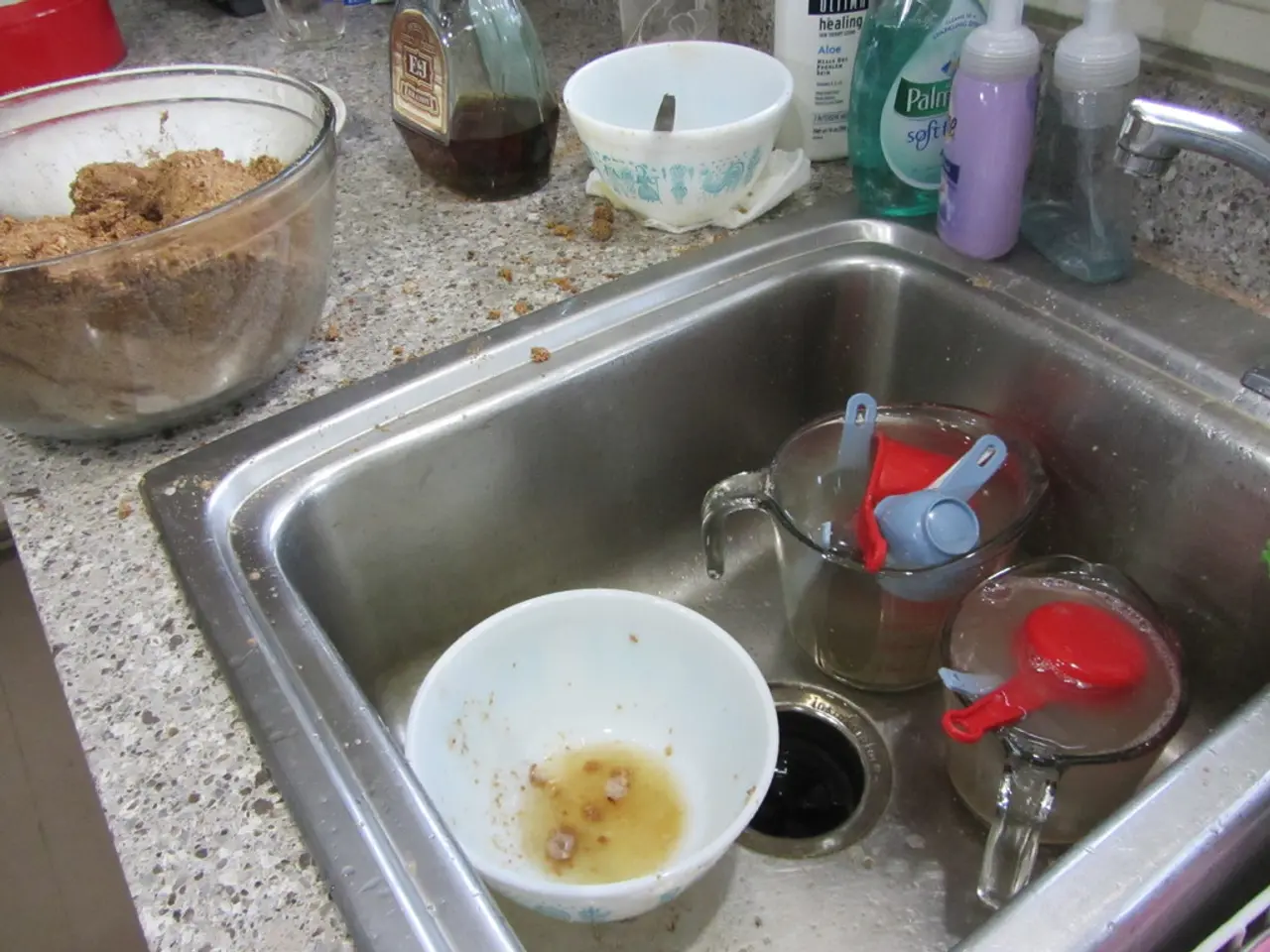Swollen lymph nodes, or adenopathy: Understanding its origins, potential causes, and available treatment options.
Swollen lymph nodes, often a sign that the body is fighting off an infection, can be a cause for concern for many individuals. These small, bean-shaped glands are an essential part of the immune system, working together to filter fluids and help the body fight off infections and diseases. However, persistent swelling may indicate a more serious underlying condition.
Lymph nodes are not responsible for producing and releasing chemicals; instead, they act as a network to carry lymph throughout the body. While lymph nodes in the lymph may not spread cancer cells as quickly as those in the bloodstream, cancer cells can still cause adenopathy (swollen lymph nodes) and potentially create tumors within the nodes.
Infections are the most common cause of swollen lymph nodes, with common culprits including the common cold, influenza (the flu), tonsillitis, meningitis, strep throat, measles, tooth infection, ear infections, mononucleosis or mono, various skin infections, sexually transmitted infections like chlamydia or syphilis, and human immunodeficiency virus (HIV).
Beyond infections, common causes of chronic swollen lymph nodes include immune system-related conditions, such as autoimmune diseases like systemic lupus erythematosus (SLE), rheumatoid arthritis, Sjögren’s syndrome, and inflammatory bowel disease. These diseases cause the immune system to attack healthy cells, leading to lymph node enlargement.
Cancer and malignancies, including lymphomas, leukemia, melanoma, and metastatic cancer spreading from other sites like breast cancer, can also cause swollen lymph nodes. These conditions may present as the first sign of cancer or indicate cancer spread (metastasis).
Benign tumors and growths, such as fibromas and lipomas, can cause localized lymph node swelling. Trauma or injury to the lymph nodes or surrounding tissues, immune responses after medical procedures or foreign body implantation, and side effects of certain medications can also lead to lymphadenopathy (swollen lymph nodes).
It's essential to seek medical attention if you experience persistently swollen lymph nodes or nodes that grow over time. Superficial lymph nodes can be checked using a physical examination, while imaging tests may be used to check for other swollen lymph nodes throughout the body.
Treatment for adenopathy typically focuses on addressing the underlying condition. Home treatments, over-the-counter pain medications, and rest may help manage discomfort from swollen lymph nodes. Antibiotics may be prescribed for bacterial infections, but they are ineffective against viral infections.
Doctors may ask questions about symptoms, order blood tests, other tests, or biopsies to diagnose the underlying cause. Doctors keep close watch over lymph nodes around the original tumor to look for signs of disease spreading. In most cases, swollen lymph nodes will return to their usual size once the infection has been treated.
In conclusion, while swollen lymph nodes are often a sign of an infection, persistent or chronic swelling may indicate a more serious underlying condition. It's crucial to consult a healthcare professional for a proper diagnosis and treatment.
- Persistent swelling of lymph nodes could be a symptom of obesity, as it is associated with a higher risk of autoimmune diseases like Crohn's, other autoimmune disorders, and depression.
- In the field of science, researchers are constantly studying the predictive role of chronic swollen lymph nodes in detecting medical-conditions such as cancer, including NSCLC and breast cancer.
- Just like other autoimmune disorders, systemic lupus erythematosus (SLE) can potentially cause swollen lymph nodes, contributing to a general state of health-and-wellness concerns.
- If a person experiences enlarged lymph nodes due to cancer or malignancies, treatment might involve addressing the root cause, such as chemotherapy or radiation therapy, depending on the type and stage of cancer.
- On the other hand, home treatments like warm compresses, rest, and over-the-counter pain medications can be beneficial in managing the discomfort caused by swollen lymph nodes resulting from common infections or benign tumors.
- Apart from infections, doctors will consider a range of other factors, including a person's AQ (Adverse Childhood Experiences) score, as they try to diagnose the underlying cause of swollen lymph nodes.
- Keeping in mind that inflammation can be a warning signal for various health issues, it is vital to maintain regular check-ups with medical professionals to monitor any changes in lymph node size, which could potentially lead to the early detection and treatment of diseases like cancer or autoimmune disorders.




